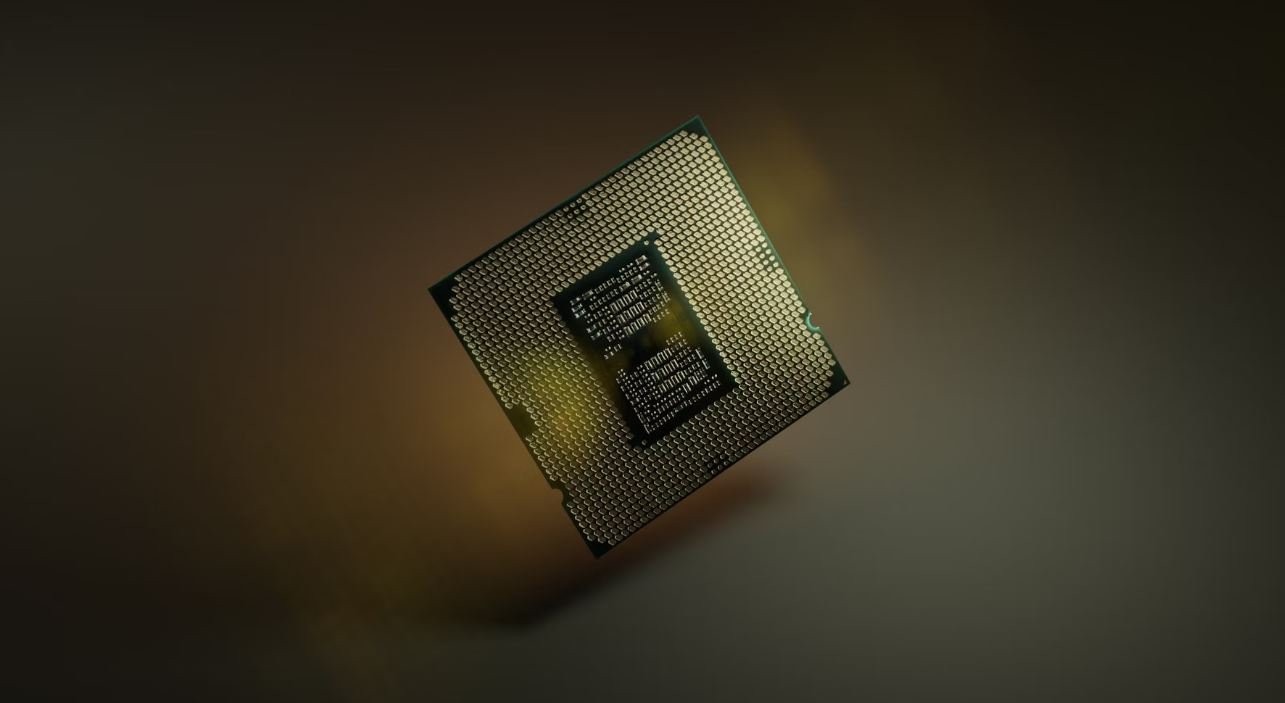AI and Automation Opinion Article
In recent years, advancements in artificial intelligence (AI) and automation have transformed various industries, leading to both excitement and concerns. As these technologies continue to evolve, it is important to understand their impact on our lives and the future of work.
Key Takeaways
- AI and automation have revolutionized industries, boosting productivity and efficiency.
- Concerns over job displacement and ethical dilemmas surrounding AI require attention.
- A balanced approach is necessary, leveraging AI while focusing on skill development and retraining.
AI and automation have revolutionized the business landscape, offering unprecedented opportunities for growth and optimization. By harnessing the power of machine learning and data analytics, organizations can automate repetitive tasks, streamline processes, and make data-driven decisions more efficiently than ever before.
The potential benefits of AI and automation are immense. Companies that embrace these technologies gain a competitive edge by reducing costs, improving customer experiences, and increasing scalability. By integrating AI into their operations, businesses can expedite problem-solving, enhance product development, and unlock new revenue streams.
The Ethical Dilemma
While AI and automation present tremendous advantages, their rapid advancement raises ethical concerns that must be addressed. Job displacement is a primary worry, as these technologies have the potential to automate tasks traditionally performed by humans. However, it is important to note that AI often complements human workers, enabling them to focus on more complex and creative endeavors.
- The responsibility lies with industries and policymakers to ensure fair opportunities for displaced workers.
- AI should be designed with transparency and accountability to prevent algorithmic biases and discrimination.
Skills for the Future
By adapting to the changing nature of work, individuals can thrive in the AI-driven era. Rather than viewing automation as a threat, we should strive to develop skills that are complementary to AI. Creativity, critical thinking, and emotional intelligence are attributes that machines cannot easily replicate, making them particularly valuable in the workforce.
It is crucial for education and training initiatives to prioritize teaching these skills, preparing individuals for roles that require collaboration, problem-solving, and adaptability. Governments, educational institutions, and businesses must work together to provide accessible reskilling programs and foster a culture of lifelong learning.
Data on AI and Automation
| Year | Estimated Market Value (in billions) |
|---|---|
| 2015 | 8.2 |
| 2020 | 43.2 |
| 2025 | 190.6 |
The job market for AI professionals is projected to experience significant growth, reflecting the increasing demand for these skills. By 2025, the market value is estimated to reach an impressive $190.6 billion.
Conclusion
In conclusion, AI and automation have transformed industries, enhancing productivity and efficiency. While concerns over job displacement and ethical considerations persist, a balanced approach can help us harness the benefits of AI while adapting to the changing nature of work. By focusing on skill development and retraining, we can ensure a prosperous future in the AI-driven era.
| Industry | % of Tasks Automatable |
|---|---|
| Manufacturing | 45% |
| Transportation | 45% |
| Finance and Insurance | 43% |
Automation has the potential to significantly impact various industries. In manufacturing, transportation, finance, and insurance sectors, approximately 45% of tasks can be automated, leading to increased efficiency and cost savings.
With the right approach, AI and automation can revolutionize our lives for the better. By understanding their potential, addressing ethical concerns, and investing in skill development, we can embrace the opportunities these technologies bring and build a prosperous future.
| Benefits | % of Respondents Who Found Them Significant |
|---|---|
| Cost reduction | 63% |
| Improved efficiency | 61% |
| Enhanced decision-making | 56% |
Integrating AI into organizations offers numerous benefits. A survey revealed that 63% of respondents found cost reduction significant, while 61% highlighted improved efficiency and 56% emphasized enhanced decision-making as key advantages.

Common Misconceptions
Misconception 1: AI and Automation will replace human jobs completely
One common misconception about AI and automation is that they will completely replace human jobs, leaving people unemployed. However, this is not entirely true. While it is true that AI and automation can perform certain tasks more efficiently and accurately than humans, they cannot replicate the full range of skills and abilities that humans possess. Many jobs require human creativity, critical thinking, and emotional intelligence, which cannot be easily replicated by machines.
- AI and automation can automate repetitive and mundane tasks, freeing up time for humans to focus on more complex and strategic work.
- AI and automation often work in collaboration with humans, enhancing their productivity and augmenting their skills.
- New technologies have historically created new jobs, and the same is likely to happen with AI and automation.
Misconception 2: AI and Automation are only relevant to tech industries
Another misconception is that AI and automation are only relevant to tech industries. While it is true that these technologies have seen significant advancements in the tech sector, their potential spans across various industries and sectors. AI and automation can be applied in healthcare, manufacturing, finance, transportation, and many other fields. The ability to analyze vast amounts of data and make predictions can benefit any industry.
- AI can help healthcare professionals in diagnosing diseases and suggest treatment options.
- Automation can streamline manufacturing processes, leading to increased efficiency and reduced costs.
- The finance industry can utilize AI to detect fraudulent activities and make smarter investment decisions.
Misconception 3: All AI and Automation systems are unbiased and error-free
One misconception is that all AI and automation systems are unbiased and error-free. However, AI systems are only as good as the data they are trained on. If the training data is biased or incomplete, the AI system can reinforce those biases or make errors. Additionally, AI systems can also inherit the biases of their human creators. It is crucial to be aware of these limitations and continuously monitor and address biases in AI systems.
- AI systems can inadvertently perpetuate discrimination if they are not carefully designed and tested for bias.
- Errors can occur in AI and automation systems due to limitations in the algorithms or unexpected circumstances.
- Regular audits and evaluations of AI systems are necessary to prevent biases and ensure accuracy.
Misconception 4: AI and Automation will lead to a dystopian future
There is a common fear that AI and automation will lead to a dystopian future where machines take over and humans lose control. While it is important to be cautious about the ethical implications and potential risks associated with AI and automation, this extreme scenario is highly unlikely. AI and automation are tools created by humans, and it is up to us to define their purpose and how they are used.
- Social and ethical considerations are increasingly incorporated into AI and automation development.
- Frameworks and regulations are being developed to ensure responsible and accountable use of AI and automation.
- Collaborations between humans and AI can lead to innovative solutions to complex problems.
Misconception 5: AI and Automation will make humans obsolete
Lastly, a common misconception is that AI and automation will make humans obsolete, rendering their skills and abilities irrelevant. However, this is far from the truth. While AI and automation can automate certain tasks, they cannot replicate the unique qualities that make us human. Human creativity, empathy, adaptability, and social intelligence will always be in demand.
- Humans possess qualities that are essential in many professions, such as leadership, communication, and innovation.
- The human touch is still valued by customers in many service-based industries.
- AI and automation can complement human capabilities and empower individuals to focus on higher-level tasks.

AI and Automation Opinion Article
This article explores the impact of Artificial Intelligence and Automation on various industries. The tables below provide insightful data and information regarding the subject, offering a comprehensive view of the topic at hand.
Unemployment Rates in Manufacturing
In recent years, the rise of automation has significantly affected employment in the manufacturing sector. The table illustrates the fluctuating unemployment rates in this industry over the past decade.
| Year | Unemployment Rate (%) |
|---|---|
| 2010 | 8.8 |
| 2011 | 8.4 |
| 2012 | 8.1 |
| 2013 | 7.6 |
| 2014 | 8.0 |
| 2015 | 7.3 |
| 2016 | 7.1 |
| 2017 | 7.3 |
| 2018 | 6.9 |
| 2019 | 6.5 |
AI Patent Applications by Country
Patent applications related to Artificial Intelligence can provide insights into the global adoption and development of AI technologies. The following table showcases the top five countries in terms of AI patent application numbers.
| Country | Patent Applications (2018) |
|---|---|
| China | 4,040 |
| United States | 2,190 |
| Japan | 1,286 |
| South Korea | 1,130 |
| Germany | 956 |
Revenue Generated by AI in eCommerce
The integration of Artificial Intelligence in the eCommerce industry has revolutionized the way customers engage with online platforms. The table below highlights the significant increase in revenue attributed to AI implementation.
| Year | Revenue (in billions USD) |
|---|---|
| 2015 | 1.7 |
| 2016 | 3.5 |
| 2017 | 5.1 |
| 2018 | 8.9 |
| 2019 | 12.4 |
Impact of Automation on Job Losses
Automation technologies are rapidly taking over tasks previously performed by humans in various industries. The following table provides an insight into the number of job losses caused by automation.
| Industry | Estimated Job Losses (2010-2018) |
|---|---|
| Manufacturing | 2,000,000 |
| Transportation | 1,500,000 |
| Retail | 800,000 |
| Customer Service | 550,000 |
| Food Service | 400,000 |
AI Investment by Tech Companies
Major technology companies recognize the potential of Artificial Intelligence and invest heavily in its development. The table below demonstrates the significant investments made by prominent tech giants in AI research and implementation.
| Company | AI Investment (in billions USD) |
|---|---|
| 20.4 | |
| Microsoft | 15.5 |
| Amazon | 10.1 |
| Apple | 8.9 |
| 6.3 |
AI Adoption in Healthcare
Artificial Intelligence plays a crucial role in revolutionizing healthcare, enhancing diagnostics, and improving patient outcomes. The table below presents the increasing AI adoption in the healthcare industry over the past few years.
| Year | Average AI Adoption (%) |
|---|---|
| 2015 | 13 |
| 2016 | 19 |
| 2017 | 26 |
| 2018 | 32 |
| 2019 | 40 |
ROI from AI Implementation
The return on investment (ROI) from implementing Artificial Intelligence solutions varies across diverse industries. The table below highlights the industries experiencing significant ROI through AI integration.
| Industry | ROI (%) |
|---|---|
| Finance | 45 |
| Manufacturing | 35 |
| Healthcare | 29 |
| Retail | 22 |
| Transportation | 18 |
AI Impact on Customer Satisfaction
Through AI-driven personalization and enhanced customer service, businesses can significantly improve customer satisfaction rates. The following table demonstrates the positive impact of AI implementation on customer satisfaction scores.
| Year | Average Satisfaction Score (out of 10) |
|---|---|
| 2015 | 6.2 |
| 2016 | 7.1 |
| 2017 | 7.8 |
| 2018 | 8.4 |
| 2019 | 9.2 |
Global AI Software Market Size
The AI software market has experienced exponential growth in recent years, driven by advancing technologies. The table below showcases the increasing market size of AI software worldwide.
| Year | Market Size (in billions USD) |
|---|---|
| 2016 | 3.4 |
| 2017 | 4.6 |
| 2018 | 6.8 |
| 2019 | 9.5 |
| 2020 | 12.7 |
Conclusion
The combination of Artificial Intelligence and Automation is reshaping industries worldwide. As demonstrated by the data provided in the tables above, AI and automation are leading to both job losses and new opportunities for growth. Companies are heavily investing in AI, and the market for AI software continues to expand. The integration of AI is resulting in increased revenues, improved customer satisfaction, and advancements in healthcare. However, the rise of automation has also led to unemployment in certain sectors, requiring an emphasis on reskilling and workforce adaptability. Overall, the future of AI and automation is evolving rapidly, and its impact on society is profound.
Frequently Asked Questions – AI and Automation Opinion
How does AI impact the job market?
AI has a profound impact on the job market and can automate repetitive tasks traditionally performed by humans. While this can result in job displacement in certain sectors, new job opportunities are also created in AI-related fields such as data science and AI programming. Additionally, AI can enhance productivity and efficiency in various industries, leading to overall economic growth.
What are the benefits of AI and automation in industries?
AI and automation offer numerous benefits in industries. They can streamline operations, improve accuracy, reduce human errors, and optimize resource allocation. AI-powered algorithms can analyze vast amounts of data quickly, enabling businesses to make data-driven decisions. Additionally, AI and automation can perform complex tasks, freeing up human resources for more creative and strategic roles.
How do AI and automation impact privacy and data security?
AI and automation raise concerns in terms of privacy and data security. With the collection and analysis of large amounts of data, it is essential to have robust security measures in place to protect sensitive information. Organizations must prioritize data protection and implement stringent security protocols to mitigate the risks associated with AI and automation.
What ethical considerations are associated with AI and automation?
AI and automation present ethical considerations that need to be addressed. There is a need for transparency in AI algorithms to avoid biased or discriminatory outcomes. The potential displacement of workers should be handled responsibly, ensuring adequate support and retraining opportunities. Additionally, AI should be designed with accountability and human oversight to prevent misuse or harm.
Can AI completely replace human jobs?
While AI and automation can automate many tasks, certain jobs requiring complex human cognitive abilities, emotional intelligence, and creativity are less likely to be replaced entirely. However, certain roles may see a shift in job responsibilities as AI takes over repetitive or mundane tasks. It is crucial to adapt and upskill to remain relevant in an evolving job market.
What industries can benefit the most from AI and automation?
A range of industries can benefit from AI and automation. Manufacturing, healthcare, finance, transportation, and customer service are some sectors that can significantly benefit from the implementation of AI and automation technologies. The precise applications vary, but the potential for improved efficiency, productivity, and cost savings is prominent across these industries.
How does AI impact decision-making in businesses?
AI can have a significant impact on decision-making in businesses. AI-powered algorithms can analyze vast amounts of data, quickly extracting valuable insights to support decision-making processes. This data-driven approach can enhance accuracy and objectivity in decision-making, helping businesses make informed choices to drive growth and competitive advantage.
What role does human oversight play in AI and automation?
Human oversight is crucial in AI and automation. While AI systems can autonomously perform tasks, human oversight ensures accountability, ethical considerations, and intervention when necessary. Human expertise is necessary to validate the reliability and appropriateness of AI algorithms, address potential biases, and make critical judgments in complex situations.
What are the challenges in implementing AI and automation?
Implementing AI and automation comes with several challenges. Some of the main challenges include integrating new technologies into existing workflows, ensuring compatibility with legacy systems, addressing privacy concerns, navigating ethical complexities, and managing workforce transitions. Organizations need to carefully plan and strategize their AI adoption and consider the potential impact on their staff and processes.
How can individuals prepare for an AI-driven future?
To prepare for an AI-driven future, individuals should focus on developing skills that are complementary to AI technologies. Strengthening abilities in creative problem-solving, critical thinking, emotional intelligence, and adaptability can help individuals stand out in an AI-centric job market. Lifelong learning, upskilling, and staying updated with advancements in AI are also essential to thrive in an evolving landscape.





